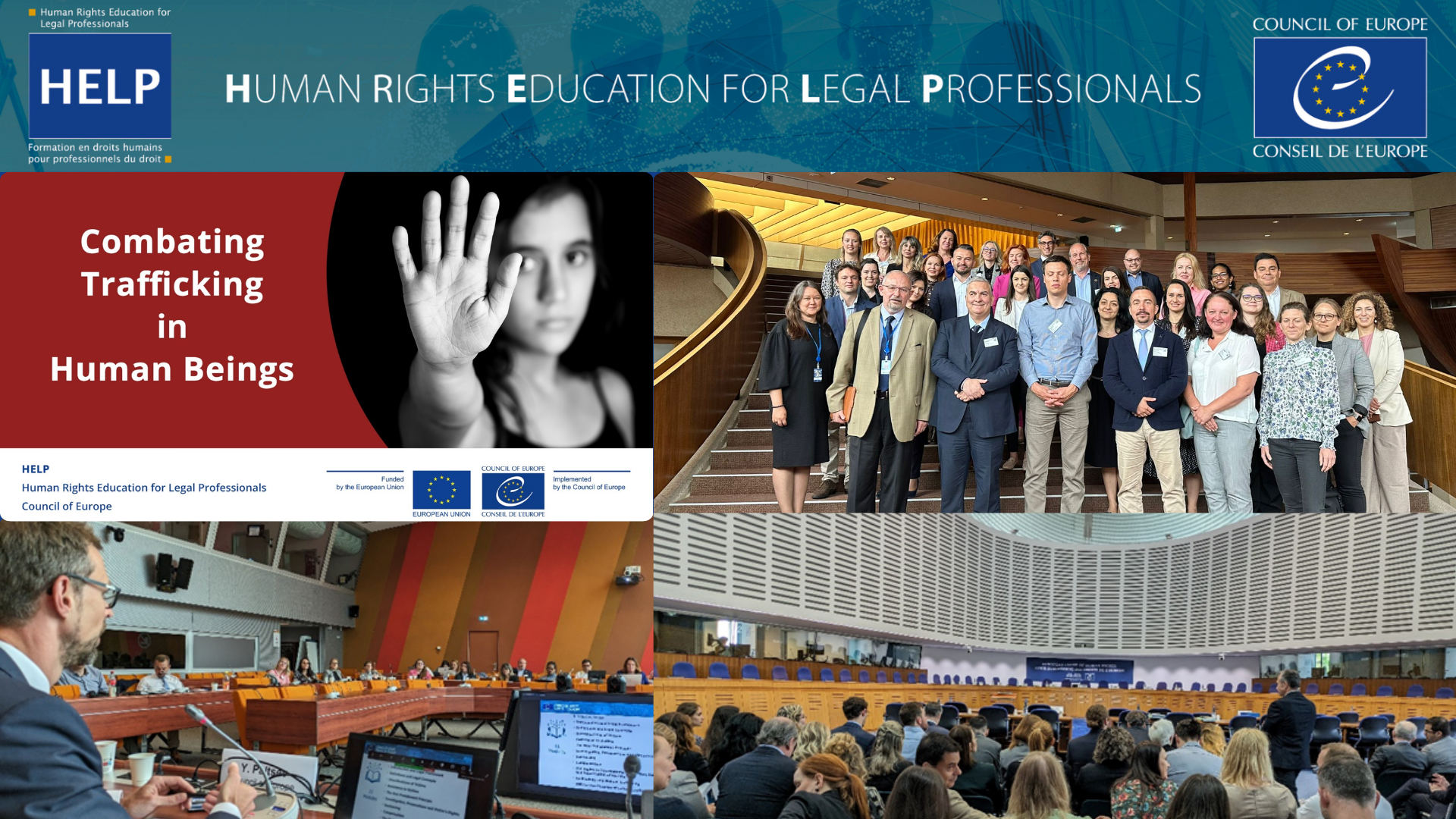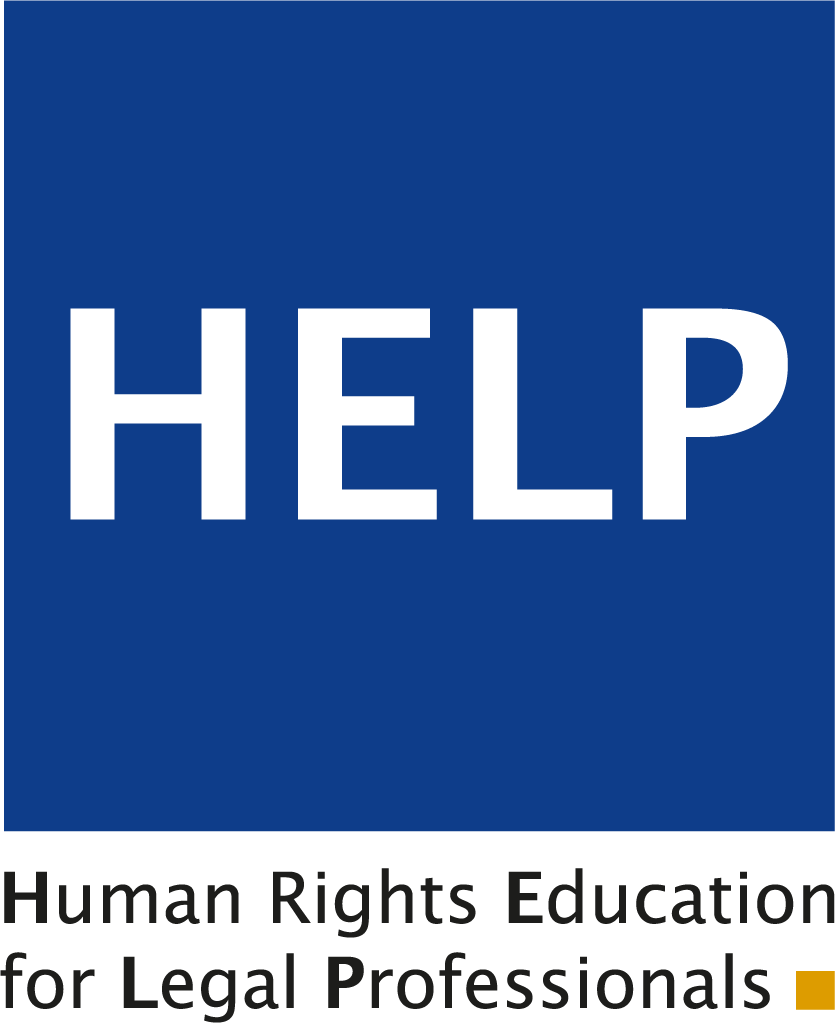On 3 and 4 June 2024 thirty judges and prosecutors from 15 EU Member States attended the launch of the Council of Europe HELP course on Combating Trafficking in Human Beings.
The event was held in Strasbourg, France and it was organised by the Council of Europe in the framework of the EU-CoE Project “HELP in the EU III” (funded under the European Union’s Justice Programme (2021-2027)).
The launch began with introductory remarks from Ana-Maria Telbis, Head of the Justice and Human Rights Training Division, Council of Europe and from Petya Nestorova, Head of Division and Executive Secretary of the Council of Europe Convention on Action against Trafficking in Human Beings. They emphasised the important role judges and prosecutors play in the fight against human trafficking and the necessity to promote their training on the subject matter, at the national level and through experience sharing at an international level.
Joined by Sergey Ghazinyan, Second Vice-President of GRETA, Petya Nestorova continued with introducing the Group of Experts on Action against Trafficking in Human Beings (GRETA), providing general Information and details about recent developments, as well as discussing main challenges and best practices. They also promoted the wide variety of resources made available by GRETA, such as its 13th General Report and its booklet on the Stock-taking of GRETA’s Third Evaluation Round.
Davor Derenčinović, Judge at the European Court of Human Rights and former Member and former President of GRETA, provided a keynote speech on the functioning and the relevant case law of the Court. He touched upon cases such as Krachunova v. Bulgaria, V.C.L. and A.N. v. the United Kingdom and S. M. v. Croatia, all of which will be explored in more detail by the participants during the implementation of the course.
Antonio Balsamo, Deputy Prosecutor General of the Supreme Court of Cassation of Italy, continued with discussing challenges and good practices in the prosecution and judgment of cases related to trafficking in human beings. He focused on the particularities of dealing with cases of trafficking for the purposes of labour exploitation and the general necessity of pro-active investigations; he also emphasised the importance of addressing the transnational dimension of human trafficking, by looking at the role of joint investigation teams and of liaison prosecutors. He presented specific examples, such as the collaboration between Nigerian, Spanish and Italian prosecutors. Furthermore, he discussed the principle of non-punishment of victims of trafficking and looked at compensatory mechanisms, taking the example of a social tailor shop functioning in a property confiscated from the mafia in Palermo.
Francesca Nicodemi, lawyer and expert on combating trafficking in human being, focused on the Italian experience of assisting victims of trafficking within migration flows. She discussed the specific rights of these particular group and the use of the guidelines on the identification of victims of trafficking among asylum seekers and referral procedures (developed by the Italian Ministry of Interior, in collaboration with the UNHCR).
The participants also attended the Chamber hearing being held at the European Court of Human Rights in the cases of G.R.J. v. Greece and A.E. v. Greece. Following the hearing, they were guided in a debriefing session by Eglantine Leblond, Case-processing Lawyer at the ECtHR.
During the launch event, the participants also got acquainted with the HELP programme and its e-learning platform, which offers over 50 courses on human rights topics. Detailed information about the HELP course on Combating Trafficking in Human Beings was provided to them by Yuriy Paltsev from the Council of Europe Anti-Trafficking Division. Furthermore, the group met their HELP tutors, judge Marcia de Vries and prosecutor Barbara Hubertova. They talked to the participants about their background and interests and presented some insights into the matters to be approached during the course. The tutors will provide the participants with support and guidance during the following weeks. All participants have been registered on the dedicated course page and are now ready to start the tutored course. HELP certificates, issued by the Council of Europe, will be awarded to those who successfully complete the course.
******************************************
The HELP course on Combating Trafficking in Human Beings emphasises that efforts to combat trafficking in human beings receive worldwide attention because trafficking threatens the human rights and the fundamental values of democratic societies. Action to combat this persistent assault on humanity is one of a number of fronts on which the Council of Europe is battling on behalf of human rights and human dignity.
This HELP course introduces the Council of Europe Convention on Action against Trafficking in Human Beings, exploring as well the case law of the European Court of Human Rights, relevant instrument issued by the European Union, and other international legal instruments, along with national good practices. The course is focused on the protection of the victims of human trafficking.
The course was initially developed in 2017. It was updated in 2024 under the Human Rights Education for Legal Professionals (HELP) Programme of the Council of Europe, by using the HELP Methodology, in close cooperation with the CoE Anti-Trafficking Division. The update has been made possible under the EU-CoE 'HELP in the EU III' Project. The topics are explored in a practical way by using presentations, interactive screens, knowledge tests and reflective exercises, enabling the users to apply the gained knowledge and skills.
The course is primarily addressed at legal/justice professionals (judges, prosecutors, lawyers, court staff), but could also be useful for law enforcement authorities, national human rights institutions and equality bodies personnel, experts on trafficking in human beings intervening in judicial proceedings and professionals working within the victims’ protection system and other persons working in the field of non-discrimination, as well as staff of civil society organisations, law students etc.
The course is available in self-learning format, which has a duration of 13 hours. While for now it can only be followed in English, translation in several other EU languages is in progress. Upon completion, users can generate their electronic Statements of Accomplishment, in proof of their acquired knowledge and skills.
HELP courses are intended, in the long term, to become an integral part of the overall learning curricula of the national training institutions and/or other competent authorities of the CoE member states and beyond.





